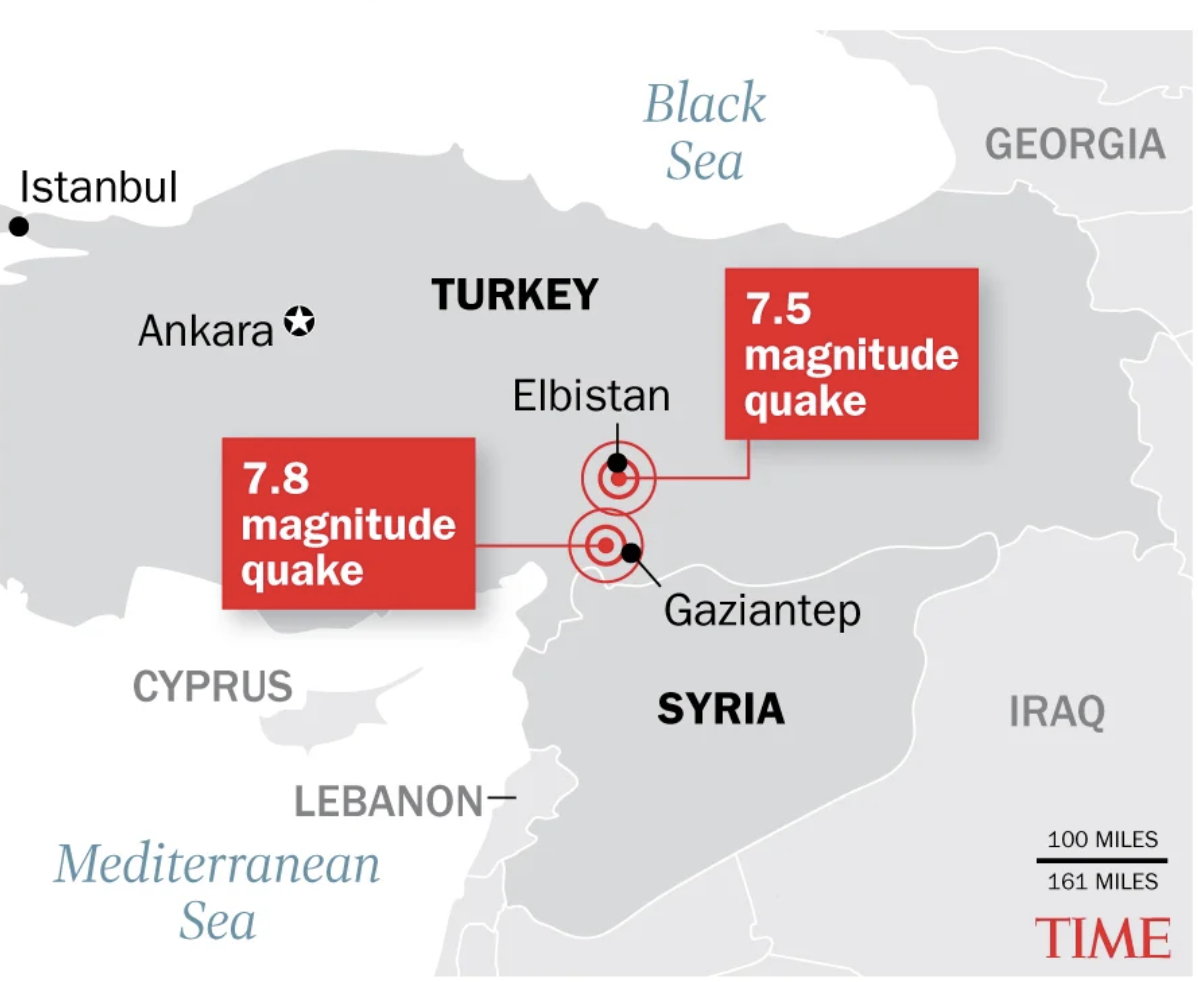Earthquakes, Freezing Temperatures, and the Deteriorating Conditions for Refugees
Source: BBC
Tragedy struck the Middle East this week as a massive earthquake hit Turkey and Syria on February 6. This natural disaster destroyed thousands of buildings across the region, pushing the confirmed death toll past 7,200. According to the World Health Organization's senior emergency officer for Europe, the death toll could rise to more than 20,000. Recent reporting highlighted that at least 8,000 people were rescued from debris in Turkey with 380,000 taking refuge in shelters.
“The earthquakes that struck early Monday, Feb. 6 were some of the biggest in the region in a century.“ Source: TIME
Rescuers are still searching for survivors trapped beneath structural damage, but their efforts have been hampered by below-freezing temperatures of 23°F (-5°C). CARE reported at the beginning of the month that with the arrival of heavy winter storms, the conditions for Syrians fleeing more than a decade’s worth of violence in their country have deteriorated. Temperatures in Jordan, Lebanon, and Syria are expected to drop to as low as -14°F (-26°C), setting a new record for the lowest temperature in 40 years. Winds of up to 50 mph (80 km/h), torrential hail, and heavy snow threaten the lives of millions of people whose lives are already in jeopardy. In addition to the death toll caused by the earthquakes, there is also a risk of hypothermia for survivors who are trapped under rubble.
What medical services are available for earthquake victims in Turkey and Syria?
In response to the earthquakes in Turkey and Syria, a wide range of medical services are available for those affected. Emergency rescue and relief operations are underway to provide aid in the search for survivors. Humanitarian organizations are offering vital supplies, such as food, water, shelter, and medical care. In addition, the United Nations has approved a crossing between Turkey and Syria that is used for transporting international aid. Professional medical treatment is available from hospitals, while local aid workers are providing emotional support. Mental health services are also accessible for those who may have endured severe trauma from the quake. Mosques in Turkey have served as shelters for those displaced from their homes, and the Union of Medical Care and Relief Organizations (UOSSM) has treated over 500 severely injured victims in hospitals.
The world has come together to provide support and aid to those impacted by the earthquakes in Turkey and Syria. 40 world leaders have offered relief efforts, while the U.S. Agency for International Development (USAID) and other federal organizations have been mobilized to assist. In addition, NATO allies have been dispatched to offer aid and assistance through relief organizations such as the Turkish Red Crescent, who are providing mobile kitchens, catering vehicles, tents, and blankets. The United Nations General Assembly held a minute of silence for the victims of the earthquakes during its 58th meeting, while U.N. Secretary-General António Guterres extended emergency response support via Twitter. All efforts are being made to aid people affected by these natural disasters, emphasizing the importance of global solidarity during difficult times.
Want to help the world’s largest refugee population? Check out the resources curated by TIME:


